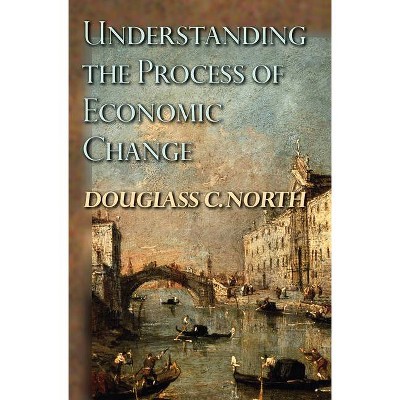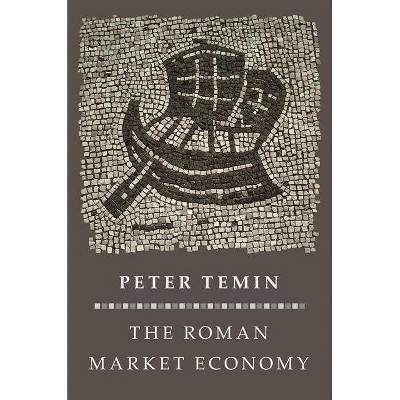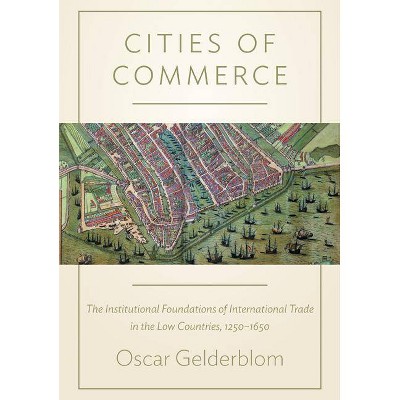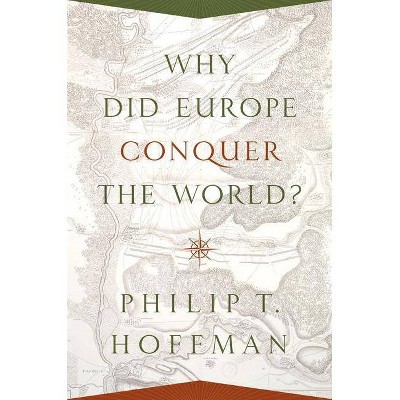The Great Leveler - (Princeton Economic History of the Western World) by Walter Scheidel (Paperback)
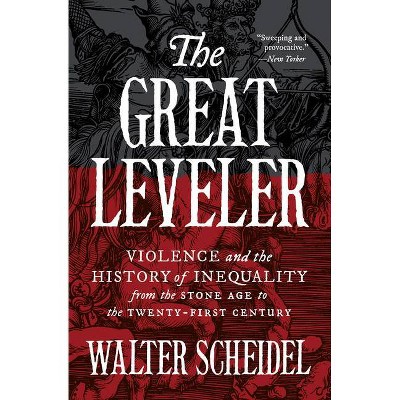
Similar Products
Products of same category from the store
AllProduct info
<p/><br></br><p><b> About the Book </b></p></br></br>"Are mass violence and catastrophes the only forces that can seriously decrease economic inequality? To judge by thousands of years of history, the answer is yes. Tracing the global history of inequality from the Stone Age to today, Walter Scheidel shows that inequality never dies peacefully. Inequality declines when carnage and disaster strike and increases when peace and stability return. The Great Leveler is the first book to chart the crucial role of violent shocks in reducing inequality over the full sweep of human history around the world. Ever since humans began to farm, herd livestock, and pass on their assets to future generations, economic inequality has been a defining feature of civilization. Over thousands of years, only violent events have significantly lessened inequality. The "Four Horsemen" of leveling--mass-mobilization warfare, transformative revolutions, state collapse, and catastrophic plagues--have repeatedly destroyed the fortunes of the rich. Scheidel identifies and examines these processes, from the crises of the earliest civilizations to the cataclysmic world wars and communist revolutions of the twentieth century. Today, the violence that reduced inequality in the past seems to have diminished, and that is a good thing. But it casts serious doubt on the prospects for a more equal future. An essential contribution to the debate about inequality, The Great Leveler provides important new insights about why inequality is so persistent--and why it is unlikely to decline anytime soon."--<p/><br></br><p><b> Book Synopsis </b></p></br></br>Are mass violence and catastrophes the only forces that can seriously decrease economic inequality? To judge by thousands of years of history, the answer is yes. Tracing the global history of inequality from the Stone Age to today, Walter Scheidel shows that it never dies peacefully. <i>The Great Leveler</i> is the first book to chart the crucial role of violent shocks in reducing inequality over the full sweep of human history around the world. The "Four Horsemen" of leveling--mass-mobilization warfare, transformative revolutions, state collapse, and catastrophic plagues--have repeatedly destroyed the fortunes of the rich. Today, the violence that reduced inequality in the past seems to have diminished, and that is a good thing. But it casts serious doubt on the prospects for a more equal future. An essential contribution to the debate about inequality, <i>The Great Leveler</i> provides important new insights about why inequality is so persistent--and why it is unlikely to decline anytime soon.<p/><br></br><p><b> From the Back Cover </b></p></br></br><p>"If you think you've heard it all about economic inequality, think again. Walter Scheidel's analysis of what really reduces inequality is provocative, but he makes the case with reason, evidence, and style."<b>--Steven Pinker, author of <i>The Better Angels of Our Nature: Why Violence Has Declined</i></b></p><p>"Brilliant, erudite, and chock-full of historical detail, <i>The Great Leveler</i> has a powerful message and asks a big question for the twenty-first century: Can we find a cure for inequality that isn't worse than the disease?"<b>--Branko Milanovic, author of <i>Global Inequality: A New Approach for the Age of Globalization</i></b></p><p>"This is the best book on the history of income inequality. And the central message is that most significant reductions in inequality come through violence and destruction. Have a nice day!"<b>--Tyler Cowen, author of <i>The Complacent Class: The Self-Defeating Quest for the American Dream</i></b></p><p>"This brilliant and thoroughly researched book solves a major paradox in the study of historical inequality. If we accept Thomas Piketty's rule that returns on capital are greater than the rate of economic growth, the 10,000 years of evolution since the Neolithic period should have resulted in all wealth becoming concentrated in the hands of a single individual or family. <i>The Great Leveler</i> explains why that didn't happen. A major breakthrough in our understanding of the historical dynamics of income and wealth inequality."<b>--Peter Turchin, author of <i>Ultrasociety: How 10,000 Years of War Made Humans the Greatest Cooperators on Earth</i></b></p><p>"Inequality and violence are fundamental features of human society. No one before Walter Scheidel has shown us just how closely they have been intertwined. This is a masterful new assessment of an age-old problem."<b>--David Stasavage, coauthor of <i>Taxing the Rich: A History of Fiscal Fairness in the United States and Europe</i></b></p><p>"<i>The Great Leveler</i> makes a convincing case."<b>--Robert J. Gordon, author of <i>The Rise and Fall of American Growth</i></b></p><p>"This superb, and superbly written, book justifies its profound but pessimistic conclusion that in world history inequality has declined significantly only as a result of violent changes caused by wars, state breakdown, or pandemics. It should have a huge impact on world historians and generate interesting and important debates about growing inequality in today's world."<b>--David Christian, author of <i>Maps of Time: An Introduction to Big History</i></b></p><p>"Walter Scheidel offers a fascinating and powerful analysis of how worldwide income and wealth inequality have evolved from the Neolithic revolution to today. No other book on inequality has the temporal breadth or reach of Scheidel's book. And his interpretation is strikingly new."<b>--Philip T. Hoffman, author of <i>Why Did Europe Conquer the World?</i></b></p><p/><br></br><p><b> Review Quotes </b></p></br></br><br>One of The Wall Street Journal's What Business Leaders Read in 2017, chosen by Mohamed A. El-Erian<br><br>strategy+business Best Business Book of 2017 in Economics<br><br>Medium.com's Books of the Year 2017, chosen by Mark Koyama<br><br>One of the CNBC 13 Best Business Books of 2017<br><br>One of the Economist.com "2017 Books of the Year" in Economics and Business<br><br>One of the Microsoft Best Business Books of 2017<br><br>One of BBC History Magazine's Books of the Year 2017<br><br>One of Financial Times (FT.com) Best Books of 2017: Economics, chosen by Martin Wolf<br><br>One of Project Syndicate's Best Reads in 2017 (chosen by Dambisa Moyo)<br><br>One of The New York Times Deal Book "Business Books Worth Reading" 2017 (chosen by Andrew Sorkin)<br><br>One of World's 2017 Books of the Year in "Understanding the World"<br><br>Selected for The HCSS Bookshelf (chosen by Stephan De Spiegeleire) 2017<br><br>Shortlisted for the 2017 Cundill History Prize, McGill University<br><br>Shortlisted for the 2017 Financial Times and McKinsey Business Book of the Year Award<br><p/><br></br><p><b> About the Author </b></p></br></br><b>Walter Scheidel</b> is the Dickason Professor in the Humanities, Professor of Classics and History, and a Kennedy-Grossman Fellow in Human Biology at Stanford University. The author or editor of seventeen previous books, he has published widely on premodern social and economic history, demography, and comparative history. He lives in Palo Alto, California.
Price History
Cheapest price in the interval: 14.79 on November 8, 2021
Most expensive price in the interval: 14.79 on December 20, 2021
Price Archive shows prices from various stores, lets you see history and find the cheapest. There is no actual sale on the website. For all support, inquiry and suggestion messagescommunication@pricearchive.us


